Product Tankers Poised to Profit from Jet Fuel Rebound
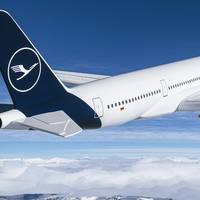
The airline industry has been hit hard during the COVID-19 pandemic and seaborne jet fuel cargo volumes suffered along with it. In comparison to pre-pandemic levels, available seat kilometers dropped nearly 90% in early 2020. Initially, air cargo volumes fell as well but saw volumes climb 5-10% above pre-pandemic levels in 2021. During 2022, the surge in cargo volumes slowed along with global economic growth prospects whereas passenger traffic continued to recover. Now, the relaxation…
As Airlines Struggle with Demand, 'Car-Cations' Boom, Stena Line says
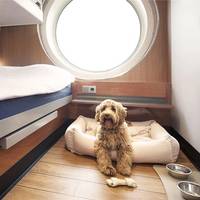
Stena Line reports that its travel business bouncde back in Britain and Ireland in 2022, with figures for the first half of the year show that passenger numbers are back to pre-pandemic levels, while car numbers in particular are far higher than in 2019.The increase in the number of cars is most striking on the Irish Sea, driven by the fact that the cost of car hire in Ireland isthe highest in Europe, driving people to instead travel by ferry and take their own cars to either Belfast, Dublin or Rosslare.
VIDEO: Profiles in Training - Mike Corrigan, CEO, INTERFERRY
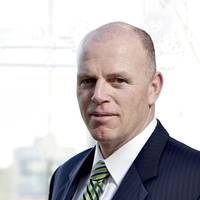
Mike Corrigan, the ubiquitous leader of Interferry, has a broad base of energy and maritime industry experience, including his stint as CEO of BC Ferries. Corrigan shares with Maritime Reporter & Engineering News his thoughts on a broad range of issues facing the ferry industry: COVID-19, emerging international regulations, and yes, maritime training and education initiatives throughout the world ferry industry.Looking back to your tenure atop BC Ferries, can you discuss this through a training and education lens?At BC Ferries, safety and training was an integral part of my role and passion.
IMO Endorses Shipping Industry's 12-step Plan for Crew Changes
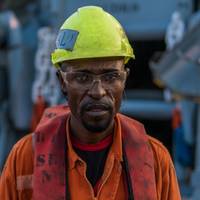
The need for ships to change crews and for the world's 1.2 million seafarers to be able to fly home at the end of their periods of service have emerged as two of the biggest challenges facing the shipping industry as a result of the COVID-19 pandemic.To help governments put in place coordinated procedures to facilitate the safe movement of seafarers, the International Maritime Organization (IMO) issued a 12-step plan to 174 member states, providing them with a roadmap to free…
Ferry Industry Seeks Financial Assistance Amid COVID-19
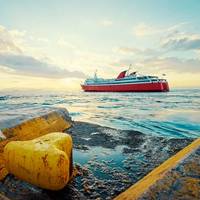
Ferry operators stuggling financially due to the COVID-19 pandemic will need government backing to help offset billions of dollars of unsustainable losses, Interferry says.The trade association is asking governments globally to include the ferry industry in their respective COVID-19 financial aid packages so that ferry operators can continue providing essential services, and to ensure that critical infrastructure and personnel are available once the global economy begins to recover.Specifically…
Vroon: Suspension on Crew Changes Extended
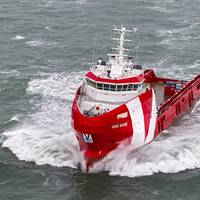
Dutch shipping company Vroon is extending its recently imposed suspension of crew changes on its vessels, citing the impact of the coronavirus.In a public letter addressed to colleagues, friends, and families, Vroon CEO Herman Marks said: "Every day, the Corona (Covid-19) virus imposes new challenges on all of us at Vroon, but also on colleagues and families at home. We have seen the airline industry virtually cease operations worldwide. Restrictions in many ports and countries are making it difficult or even impossible to disembark or embark colleagues.""Consequently…
Shipbuilding: Norway’s Fjellstrand Rewrites the Book
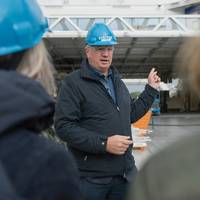
As maritime digests a number of historical changes, Norway’s Fjellstrand shipyard wants to put aside the rule book and look at the whole process in a new way, reducing engineering costs up to 70% and production costs up to 20%.The process of designing and building a ship, even in today’s highly standardized mass manufacturing environment, remains largely a one-off, one-of-a-kind design and build. Ships are most often built to a shipowner’s or operator’s specific requirements, which are often based on fixed parameters such as speed…
Ship IoT Tech Enables Navigation Safety

The airline industry has long employed flight data to monitor navigational and operational practices for evaluation and feedback to pilots using a system called Flight Operations Quality Assurance (FOQA). Now a similar concept is coming into the shipping industry. Danelec Marine, a well-known manufacturer of VDRs and ECDIS products, this month unveiled a new Bridge Operational Quality Assurance (BOQA) system. To learn more, we talked with Hans Ottosen, CEO of Danelec, a Danish…
Shipbuilding: Rewriting the Book
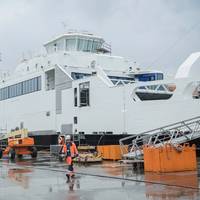
As maritime digests a number of historical changes, Norway’s Fjellstrand shipyard wants to put aside the rule book and look at the whole process in a new way, reducing engineering costs up to 70% and production costs up to 20%.The process of designing and building a ship, even in today’s highly standardized mass manufacturing environment, remains largely a one-off, one-of-a-kind design and build. Ships are most often built to a shipowner’s or operator’s specific requirements, which are often based on fixed parameters such as speed…
DFDS CEO Steps Down
Danish international shipping and logistics company DFDS said that Niels Smedegaard, longtime CEO, will step down by the end of April. Current CFO Torben Carlsen will take over as new CEO.In close partnership with Niels Smedegaard, Torben Carlsen has been in-strumental in making DFDS a larger, stronger and more profitable company and will thus contribute to ensuring continuity in the development and op-eration of the company.Niels Smedegaard has been CEO of DFDS since 1 January 2007.Niels said: “My time at DFDS has been a fantastic journey, and I am proud of the progress that has been made for the company and its employees, cus-tomers and shareholders since I joined.
ABB Digitalizes Maritime Maintenance
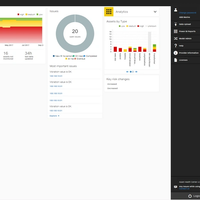
ABB has added ‘Fleet Intelligence’ to its ABB Ability Collaborative Operations software, providing marine customers with a single and complete overview of their ship system maintenance needs rather than being faced with piecemeal, standalone reporting solutions. Fleet Intelligence addresses a common shortcoming in ship efficiency, where data from manufacturer manuals provide the basis for the planned maintenance system, meaning that equipment is maintained to standards set by vendors rather than being based on the needs of customers.
Human Failure Affecting Shipping Safety Performance
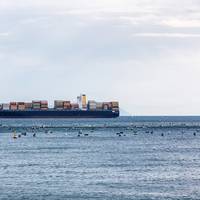
Data from maritime safety specialist Propel shows huge potential to reduce risk of serious accidents. “Human failure tops the agenda of many companies though few know how to address it in a proper way. Collaboration, trust and engagement of all personnel -ship and shore- are vital to reduce major accidents. The whole industry needs to change its focus when it comes to improving maritime safety,” said Benedikte Wentworth, CEO of Propel. According to Propel, despite the continuing downward trend in total vessel losses…
Simulation: CSMART
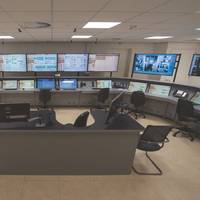
While much of the maritime world slumps, the cruise sector is enjoying its most vibrant growth in a generation. Carnival Corporation, in particular, is doing very well as its financial performance is stronger than ever, with 2016 delivering the best year of earnings in company history. The company’s adjusted earnings for 2016 of $2.6 billion is the best annual financial performance in its 44-year history. With that, Hans Hederstrom, Managing Director give overview of CSMART, one of the newest and richly appointed simulation centers on the planet.
Report Calls for Shipping Liners to Consolidate
The need of the hour is consolidation of container ship lines order to regain profitability and to overcome financial struggles, consulting firm AlixPartners says in a new report. The report says that an increased supply of vessels, coupled with the introduction of giant ships, had met with a dwindling demand in the second half of last year resulting to overcapacity, low profitability and reduced cash flow. The shippers with “M&A on their minds need to be proactive” if they hope to reap the kind of rewards winners in consolidated industries enjoy—or to prevent becoming acquisition targets themselves, the consultants suggested, pointing to the successful consolidation of the US airline industry as a possible template to follow.
Simple Steps to Futureproof the Shipping Industry
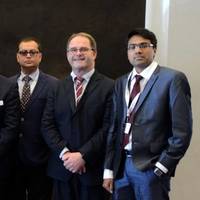
Senior decision makers from all sectors of the shipping industry met in Hamburg yesterday to hear some of the leaders in the digital revolution debate the opportunities and threats faced by the industry today. Although operating in many different fields, their conclusion was startlingly clear. To navigate successfully and profitably in the digital age, ship operators must go back to basics, steering a clear course through the data explosion to harness the benefits of the new technologies whilst avoiding their pitfalls.
Shipping Line Consolidation: What Did the Airlines Do?
The container shipping industry is faced with the challenge of ever-decreasing freight rates that can only be served viably with larger, more efficient vessels. This problem is worsened by the industry’s average financial performance which does not generate the returns to invest in this new capacity without considerable financial risk. There are only two alternatives: either an all-out battle for market share in the hope that several lines simply abandon a particular trade or even exit the market completely allowing the surviving lines to capture the volumes freed up by these departing lines, or collaboration with other lines to allow more efficient and rational capacity utilisation.
France to host airshow-style nuclear exhibition
France hopes to boost its nuclear industry with a biennial exhibition modeled on the Paris Air Show, although it does not expect reactor orders to pile up as fast as airplane contracts. To be held in the same Le Bourget venue as the airshow, the October 14-16 World Nuclear Exhibition (WNE) expects some 7,000 visitors will visit stands representing nearly 500 French and foreign nuclear industry companies, the organisers said on Thursday. "Obviously, it would be an illusion to expect to sign as many nuclear reactor contracts there as the airline industry does at the airshow," WNE chief Gerard Kottmann told reporters. At the 2013 Paris Air Show…
INSIGHTS Focus: Robert Kunkel Talks Power and Propulsion
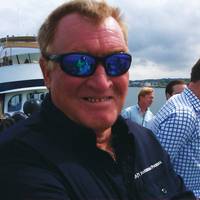
Those MarineNews readers who are not familiar with Bob Kunkel probably should be. That’s because Kunkel, President of Alternative Marine Technologies, previously served as the Federal Chairman of the Short Sea Shipping Cooperative Program under the Maritime Administration and Department of Transportation from 2003 until 2008. He is a past Vice President of the Connecticut Maritime Association, a contributing writer for many maritime and technical trades publications, including Maritime Professional Magazine and MarineNews.
Breaking Down The Cost of MARPOL
Since January 8, 2009, United States (U.S.) and foreign flagged ships operating in the waters of the U.S. have been subject to MARPOL Annex VI. The Marine Environmental Protection Committee (MEPC) of the International Maritime Organization (IMO) adopted amendments to Annex VI and the nitrogen oxides (NOx) Technical Code, collectively referred to as Annex VI (Revised). Annex VI (Revised) entered into force on July 1, 2010. These amendments include significant and progressive limits for sulfur oxide (SOx) and NOx emissions from marine engines and for the first time addressed emissions of Particulate Matter (PM). The amendments replaced the SOx Emissions Control Areas (SECA) by introducing the concept of Emission Control Areas (ECA) for SOx, NOx, and PM.
Containership Consortia Set for Further Expansion: Analyst
The formation of 2M is only the conclusion of the latest round of mega-alliance negotiations. Ocean carriers are clearly not yet done with mega-alliance expansion following China’s rejection of P3. Maersk and MSC’s subsequent 2M agreement is only the latest. Evergreen and the CKYH alliance are still talking to the US’ Federal Maritime Commission (FMC) about extending the scope of their operating agreement between Asia and Europe to include the US, and CMA CGM has yet to clarify who its new partners will be. New partnerships are required as no one has yet come up with a better alternative to reduce costs and improve service frequency at the same time, short of take-overs and mergers.
Suppression of Random Drug Test Results: A Bad and Unnecessary Decision

Last September, an Administrative Law Judge (ALJ) unsettled much of the U.S. maritime industry when he dismissed with prejudice a U.S. Coast Guard (USCG) action to revoke a Merchant Mariner’s Credential (MMC) despite his finding that the mariner’s urine had tested positive for cocaine. The case is referred to as USCG v. Hopper, SR-2014-14. American Maritime Safety, Inc. (AMS) considered the Hopper outcome to be a bad decision, both because it imposes harsh evidentiary consequences…
Making Stop Work Authority Work
It is one thing to have a policy posted. It is another to review and explain such a policy to a new crew during their orientation or when they first sign on a vessel. And, finally, it is still another to claim the policy has been effectively implemented. A number of recent maritime incidents have led to ‘Stop Work Authority’ (SWA) becoming a federally mandated part of a safety management system (SMS) for vessels operating in certain areas and industries. Other sectors, while not federally mandated with respect to this requirement, adopted and implemented SWA years ago, on their own. SWA, far from a new concept, is one that recognizes the importance attached to encouraging any employee on board a vessel (whether licensed…
Unmanned Vessels: The Future is Now
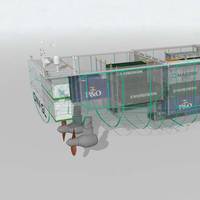
There is a global boom in the development of unmanned systems, from below the ocean’s surface to high in the sky to the world’s roads. Add to this list the maritime industry, on both military and civilian vessels. Maritime Reporter & Engineering News examines in depth recent developments taking place in Europe to discover general thoughts and technical trends driving the future of unmanned shipping. The joint European Research Project MUNIN was finalized in August 2015, a project…





